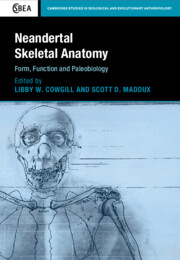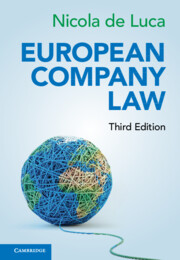Refine search
Actions for selected content:
3410435 results
Demobilising the Far Right
- Patterns and Processes from Demonstration Campaigns in Germany, England, and Austria
- Coming soon
-
- Expected online publication date:
- June 2026
- Print publication:
- 31 May 2026
-
- Book
- Export citation
Embattled Belief
- Religion and the British Army from Korea to Afghanistan
- Coming soon
-
- Expected online publication date:
- June 2026
- Print publication:
- 30 June 2026
-
- Book
- Export citation
Capabilities at Work
- The Added Value of the Capability Model for Well-Being and Work
- Coming soon
-
- Expected online publication date:
- June 2026
- Print publication:
- 30 June 2026
-
- Book
- Export citation

Neandertal Skeletal Anatomy
- Form, Function and Paleobiology
- Coming soon
-
- Expected online publication date:
- June 2026
- Print publication:
- 31 July 2026
-
- Book
- Export citation

Ngugi wa Thiong'o in Context
- Coming soon
-
- Expected online publication date:
- June 2026
- Print publication:
- 30 June 2026
-
- Book
- Export citation

Aurangzeb ‘Alamgir and the Mughal Empire
- A History Retold
- Coming soon
-
- Expected online publication date:
- June 2026
- Print publication:
- 31 May 2026
-
- Book
- Export citation
Frenzy in Early Modern England
- Madness, Brain Disease and the Soul
- Coming soon
-
- Expected online publication date:
- June 2026
- Print publication:
- 30 June 2026
-
- Book
- Export citation
The Written Word in Early Medieval England
- Kent, Mercia and Wessex, c. 830–920
- Coming soon
-
- Expected online publication date:
- June 2026
- Print publication:
- 31 May 2026
-
- Book
- Export citation
Developing Theories in the Social Sciences
- Methods and Applications
- Coming soon
-
- Expected online publication date:
- June 2026
- Print publication:
- 30 June 2026
-
- Book
- Export citation
Earth's Amphibious Transformation
- The History and Present of the Oceanic Anthropocene
- Coming soon
-
- Expected online publication date:
- June 2026
- Print publication:
- 30 June 2026
-
- Book
- Export citation
Ideology and the Language of Human Rights
- Language, Text, and Ideology in Amnesty International Appeal Letters
- Coming soon
-
- Expected online publication date:
- June 2026
- Print publication:
- 30 June 2026
-
- Book
- Export citation
The Cambridge Handbook of the Minimalist Program
- Coming soon
-
- Expected online publication date:
- June 2026
- Print publication:
- 30 June 2026
-
- Book
- Export citation
Gender and Elections
- Shaping the Future of American Politics
- Coming soon
-
- Expected online publication date:
- June 2026
- Print publication:
- 30 June 2026
-
- Textbook
- Export citation

An Introduction to Gulf Politics
- Coming soon
-
- Expected online publication date:
- June 2026
- Print publication:
- 31 May 2026
-
- Textbook
- Export citation

European Company Law
- Coming soon
-
- Expected online publication date:
- June 2026
- Print publication:
- 30 June 2026
-
- Textbook
- Export citation
Scientific Theories of Consciousness
- Coming soon
-
- Expected online publication date:
- June 2026
- Print publication:
- 30 June 2026
-
- Book
- Export citation

Gender and the Global Climate Crisis
- Women's Voices, Representation and Activism in the Middle East and North Africa
- Coming soon
-
- Expected online publication date:
- June 2026
- Print publication:
- 30 June 2026
-
- Book
- Export citation

Revolutionary Shi'i Modernism in Iraq
- The Thought and Legacy of Muhammad Baqir al-Sadr
- Coming soon
-
- Expected online publication date:
- June 2026
- Print publication:
- 30 June 2026
-
- Book
- Export citation

Philosophy of Mathematics after Wittgenstein
- Coming soon
-
- Expected online publication date:
- June 2026
- Print publication:
- 30 June 2026
-
- Book
- Export citation
Critical Review for the MRCPsych
- Coming soon
-
- Expected online publication date:
- June 2026
- Print publication:
- 30 June 2026
-
- Book
- Export citation
